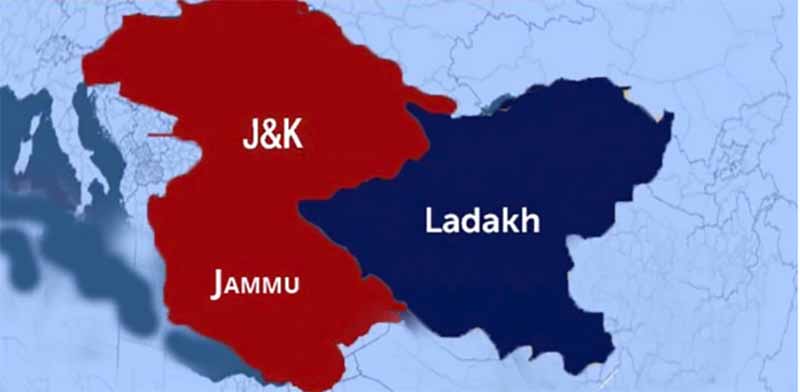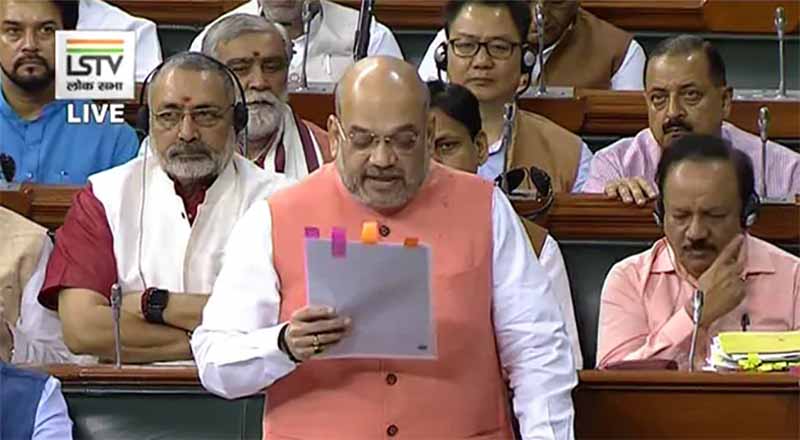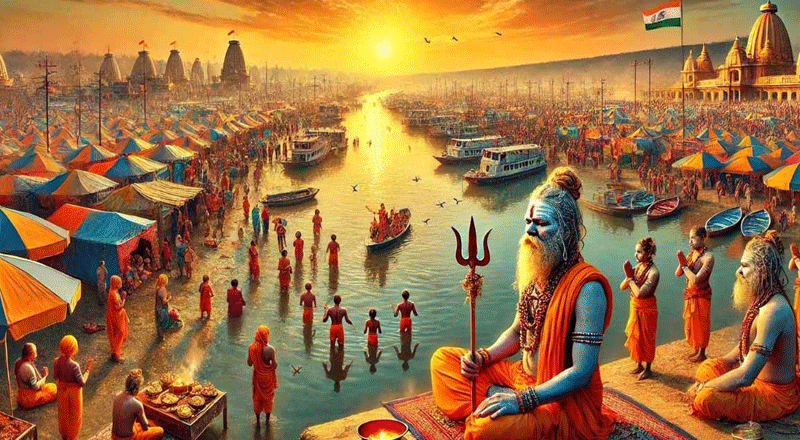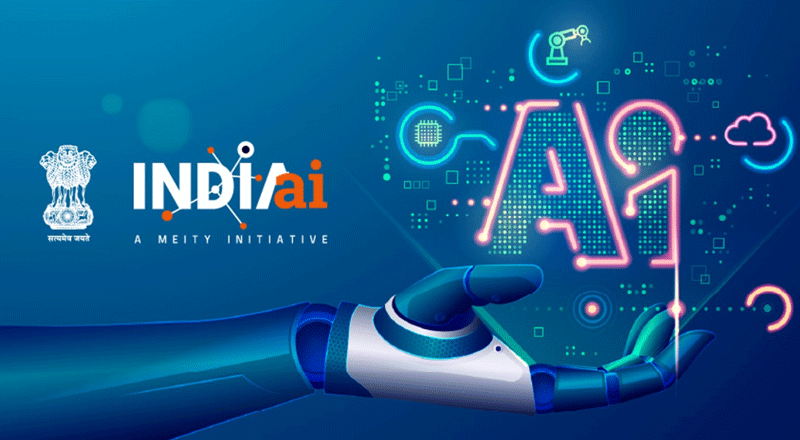Article 370, Jammu and Kashmir: Home Minister Amit Shah moves resolution in Lok Sabha.
Article 370 Jammu and Kashmir is scraped. Home Minister Amit Shah has introduced, the Jammu and Kashmir Reorganisation Bill 2019 in Rajya Sabha. The Bill seeks to make Jammu and Kashmir a Union Territory with Legislature, and Ladakh Union Territory without Legislature , which splits the state into two Union Territories, sailed through the Lok Sabha today, with some of the opposition parties walking out.
370 Lok Sabha members voted in favour of the bill and 70 voted against it. For the first time we are witnessing a state being turned into a Union Territory. The government had on Monday announced that special status to Jammu and Kashmir under Article 370 of the constitution has been removed by an order from President Ram Nath Kovind.
Congress’s Manish Tewari opposed the centre’s Kashmir move saying: “For the first time we are witnessing a state being turned into a Union Territory.”
The state of Jammu and Kashmir is under a lockdown and former chief ministers – Omar Abdullah and Mehbooba Mufti – were arrested on Monday soon after the two resolutions cleared Rajya Sabha. National Security Advisor Ajit Doval and Home Secretary Rajiv Gauba are in Jammu and Kashmir today to oversee the security measures.
The Union Government passed a Presidential Order under Article 370(1) of the Indian Constitution, to supersede the 1954 Presidential Order, which, along with several other Presidential Orders, specifies which provisions of India’s Constitution apply to Jammu and Kashmir. The superseded Order was unique in that it lays out most of the details on the special status accorded to Jammu and Kashmir under the Indian Constitution.
In Box: Article 370 removed, anyone can buy land in Kashmir now.

Union home minister Amit Shah at Parliament House on Monday. PTI
In this conversation, it is important to understand the distinction between the Indian Constitution, and the Indian Constitution as applied to Jammu and Kashmir. Article 367(4) will be a provision of the Constitution as applied to Jammu and Kashmir that does not modify the Indian Constitution. Article 35A — which provided special status to Jammu and Kashmir till Monday (5 August) under the 1954 Presidential Order — likewise was a provision of the Constitution as applied to Jammu and Kashmir. This is why you will not find Article 35A after Article 35 in the bare text of the Indian Constitution as sold in the market.
The President’s Order is passed under Article 370(1): What does that mean?
An order passed under Article 370 (1) of the Indian Constitution by the President can be passed only under Article 370(1)(d). Article 370(1)(d) effectively provides that notwithstanding anything in the Indian Constitution, provisions of the Indian Constitution other than Article 1 and Article 370 can be made to apply to Jammu and Kashmir with any modifications and exceptions that the President may deem fit, by presidential order. In short, a Presidential Order like Monday’s can apply a modified version of provisions of the Indian Constitution other than Article 370 and Article 1 to Jammu and Kashmir.
In a nutshell, because of Article 370(1)(d) of the Indian Constitution, Monday’s Presidential Order cannot cause Article 370 and Article 1 to apply in a modified form to Jammu and Kashmir.
In Box: While the permanent residents of J&K stand to lose all special privileges including the right to own property and hold state government jobs, the revoking of Article 370 ends the age-old discrimination against women of the state who chose to marry outsiders
The announcement came after Prime Minister Narendra Modi held a meeting of his cabinet at his house this morning. Amit Shah also introduced a bill to bifurcate Jammu and Kashmir into two union territories, which was passed in the Rajya Sabha. Prepping for any trouble in the state after the announcement, the centre moved 8,000 paramilitary troops from different parts of the country to Kashmir, in addition to nearly 35,000 personnel moved in the past week.
Legislative powers
J&K Assembly will no longer be in a position to clear any significant bills within the state – the balance of power will shift in favour of the Union government. Significantly, in the absence of an elected government in the state the presidential order reportedly states that the state’s governor shall exercise the powers of the elected government.





